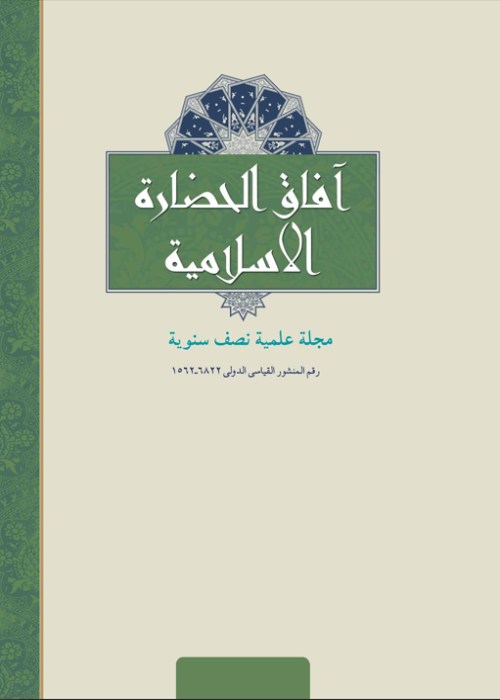Analysis of the characteristics of the method of Seyyed Morteza Askari (RA) in proving the non-distortion of the Quran
The approach of the present article is to explain one of the religious doubts about the basic pillar of the religion of Islam. Distortion of the Qur'an is one of the suspicions mentioned by the opponents of Islam and its opponents in their works and speeches. Some Muslim scholars, with their misconceptions, have stated the reasons for the distortion of the Qur'an, which has been used by the opposition. On the other hand, prominent Islamic scholars have criticized and rejected the arguments of those who distort the Qur'an, including Allama Seyyed Morteza Askari. The purpose of this study is to analyze the content of the book "The Holy Quran and the Traditions of the Teachers" (three volumes) by descriptive-analytical method, in order to extract the methodological characteristics of Allameh Askari to prove the non-distortion of the Holy Qur'an and use those characteristics to answer other doubts. Based on the research findings, regardless of the general characteristics of Allameh Askari's research method in responding to doubts, including "identifying the main doubts", "using relevant sources along with the main sources under discussion" and "examining the evolution of narrations to express the weakness of the document and The text can be cited as three factors: "proper use of the theory of expressive revelation", "evolution of the meaning of Islamic terms" and "study of socio-historical conditions at the time of events", as his innovations in response to this doubt. Therefore, the difference between Allameh Askari's method and other related authors can be considered in these matters:1 .Inactivity or useless concentration: Allameh did not become passive in the face of doubts, by avoiding dealing separately with marginal, repetitive or overlapping doubts in the process of opposing the attention of various doubts. At the same time, by forming an organization for different types of co-occurring suspicions and recognizing their root cause, the audience's mind - which was mostly intimidated by the multiplicity of related suspicions - realized the difference between forms and tools while at the same time rooting. Responding to doubts to the audience, has an easier path and also increases the audience's ability to face other multiplied doubts. 2. Gathering and answering the best reasons for doubts: He collected the strongest reasons for doubts (even from various sources) that perhaps the skeptics themselves were unaware of mentioning, so that the answer is comprehensive and preventative. Other works in this field were often sufficient for the same reason contained in the text containing the suspicion. 3. Considering the change of historical ecosystem: Allameh carefully examines the difference between the understanding of people at the time of writing the Qur'an and the time of writing his work, considering the principle of changing understanding and understanding of issues in history and attaching the historical ecosystem of events, scope And increase the depth of your analysis. Historical ecosystems have their own forms of inducing meanings that most related writers did not comprehensively address. The ability to respond to suspicion is not merely in response to the cause of doubt. He should also try to count the stronger arguments put forward by other critics and skeptics, and by answering them, provide a comprehensive and obstructive answer with the scientific mastery and richness of his arguments. In understanding the text, one should pay attention to the hypertext view and reflect on all the factors that have caused the emergence and publication of the text, to study and understand the subject. The natural process of changing the historical ecosystem leads to the evolution of narrations, names, terms, etc., and if a person with modernity bases his perception of time on the analysis of doubts, he will fail to provide an accurate and complete answer. The narrations of the Ahl al-Bayt (AS) are one of the most prominent sources in proving the non-distortion of the Qur'an, and extracting theories such as "expressive revelation" from the guidelines of the Ahl al-Bayt (AS) will greatly enhance the scientific ability to respond to doubts.
- حق عضویت دریافتی صرف حمایت از نشریات عضو و نگهداری، تکمیل و توسعه مگیران میشود.
- پرداخت حق اشتراک و دانلود مقالات اجازه بازنشر آن در سایر رسانههای چاپی و دیجیتال را به کاربر نمیدهد.


